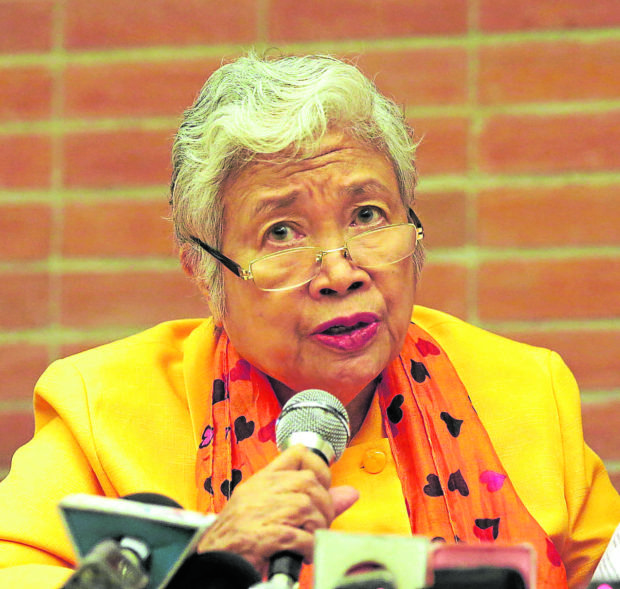DepEd to WB: Apologize for ‘shaming’ PH by not following protocol in releasing study
The Department of Education (DepEd) on Monday demanded an apology from the World Bank for not following the proper protocol in releasing its Philippine education study saying that Filipino students “do not know what they should know in school.”
In a Palace briefing, Education Secretary Leonor Briones pointed out that the World Bank released its report to the media before informing the DepEd about its content, which she claimed was a “grave error” that “insulted and shamed” the country.
The World Bank released last week a report on Philippine education that analyzed the results of international student assessments, including the 2018 Programme for International Student Assessment (Pisa), which showed that the Philippines ranked second lowest out of 79 countries in both mathematical and scientific literacy.
Reform initiatives
The report also cited results of the 2019 Trends in International Mathematics and Science Study, which found that Filipino Grade 4 pupils ranked last among 58 countries in mathematics and science.
Briones countered, however, that the data used by the World Bank were outdated as “a lot has already happened since 2019.”
Article continues after this advertisement“Since the country was insulted, shamed, and so on, we expect and look forward to a public apology,” she said, adding that the World Bank had sent her a personal apology.
Article continues after this advertisementBriones criticized the World Bank for inflicting a “more important error” on the DepEd by omitting the agency’s initiatives to improve the quality of education in the country, which she said were implemented even before the results of the Pisa 2018 were released.
According to Briones, the report also lacked historical context, particularly the fact that the Philippines has been securing World Bank loans amounting to $713 million since the education sector’s partnership with the lender began in 1981.
“Giving (only) a snapshot of the current situation without its historical context can easily give the impression that it is the present administration that is to blame, and not mentioning current initiatives (on education) can further give the impression that we are not doing anything about it,” she said.
Briones explained that the DepEd was addressing the challenge of quality in basic education through its reform initiatives.
K-12 failure
A Makabayan lawmaker put the blame squarely on the government’s “abandonment” of education.
House assistant minority leader and ACT Teachers Rep. France Castro said the results of three World Bank-led assessments proved that the Kindergarten to Grade 12 (K-12) program did not enhance the quality of basic education.
“If only the government prioritized the perennial problems of education and provided adequate funds for classrooms, learning materials, facilities like laboratories and libraries, better learning environment for the youth, and for substantial salary increase for teachers and education support personnel, then our youth could have received better quality education and would not have performed poorly in international assessments,” she said.
Top officials of the Philippine Business for Education (PBEd), a group founded by company chief executives in 2006, also said the government was not doing enough to address the learning crisis that has worsened during the pandemic, a lack of action that would have long-term economic repercussions.
They reiterated a call first made to the government at the start of the year: Address the learning crisis now, or suffer the consequences later.
PBEd said these problems could not be solved overnight, but huge steps toward a solution should start now. The first step, it said, was to know just how bad the crisis was by putting up an Education Commission to do an honest and comprehensive look at the sorry state of education.
Ramon del Rosario, PBEd chair, said the government should also start allowing in-person classes in areas with low risk of infections to show the rest of the country that it was possible to have a safe reopening of schools.
